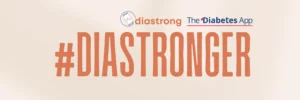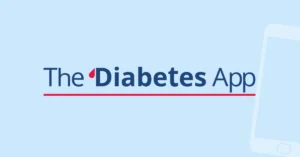Colonialism continues to perpetuate social, environmental, cultural, and economic inequalities among the Indigenous population. Health inequities and intersecting identities make Indigenous people more susceptible to diseases such as diabetes. In addition, this community experiences diabetes-related stigma and blame.
Introduction
Colonialism in Canada led to the removal of Indigenous Peoples from their land. In 1876, the Indian Act was passed and allowed the Canadian government to gain more control over Indigenous Peoples, resulting in cultural elimination and assimilation into Canadian society. Over the years, this act has been amended to remove discriminatory policies. From 1920 to 1996, the children of Indigenous families were sent to residential schools run by churches. These schools stripped Indigenous youth of their culture and assimilated them into Canadian society unjustly. Residential schools had severe mental, physical, emotional, and spiritual effects on Indigenous youth. During the 1960s, also known as the ‘Sixties Scoop’, Indigenous children were taken from their families and placed into foster homes.
Ultimately, acts like this have caused those with Indigenous heritage to continue to experience intergenerational trauma from colonialism. Traumas like these lead to the development of mental and physical illnesses and diseases as the Indigenous population continues to experience discrimination and unequal opportunities in current social structures. This article will focus on diabetes among Indigenous Peoples and how social determinants of health, intersectionality, and stigma can affect individuals. We must continue educating ourselves on the disparities Indigenous Peoples face, so we can work towards fixing our society, and build towards reconciliation.
Social Determinants of Health (SDHs)
The social determinants of health relate to avoidable health inequities individuals face in social, political, and economic structures. For example, an individual who lacks access to nutritious food or works in a low-income job can experience preventable health issues. If this individual’s economic position positively changed, their health issues would improve. As a result, Indigenous Peoples can be more susceptible to worse health outcomes because they are more likely to experience inequalities. Colonialism perpetuates racism in our social structures and leads to unequal opportunities for Indigenous Peoples. In addition, historical experiences of colonialism and the resulting trauma is passed on from generation to generation (intergenerational trauma), making those of Indigenous heritage more susceptible to illnesses and diseases.
Intersectionality
Intersectionality relates to the social determinants of health, because it emphasizes how individuals who experience more than one social inequality are at an increased risk for illnesses and diseases. For example, a female with Indigenous heritage who is also part of the LGBTQ+ community, can face more barriers (hence leading to worsened health) than a heterosexual European female. We must acknowledge people’s identities, so that we can understand the inequalities they face. Once we are aware of these intersections, we can work to address and amend each issue separately.
Diabetes Stigma
The Indigenous community faces stigma around diabetes. There is a misconception that an Indigenous individual’s genetic makeup and/or lifestyle behaviour may solely contribute to the development of diabetes. However, social determinants of health and resulting inequities, are a major cause of diabetes for all marginalized communities in general. Eating unhealthy food is more closely linked to social inequalities. Such as working in a low-income job, unequal opportunities in the workplace due to racism, and lack of access to proper cultural meals and resources, and more. The belief of genetics playing the predominant role in the contribution of diabetes tends to place the blame onto individuals for factors outside their control, and further marginalizes them.
In Conclusion
Social determinants of health, intersecting identities, and continuing stigma are all barriers that Indigenous Peoples who have diabetes can face. As you keep this in mind, we encourage you to continue educating yourself on this topic!
What can you do to help?
- Assist the people who are actively supporting and are a part of the Indigenous Peoples community in your area
- Donate to specific charities for Indigenous Peoples
- Anishnawbe Health Foundation: https://www.canadahelps.org/en/charities/anishnawbe-health-foundation/
- Kahnawake Schools Diabetes Prevention Program (KSDPP): https://www.ksdpp.org/
- Iyahare Nakoda Food Bank Society: https://www.canadahelps.org/en/charities/iyahrhe-nakoda-food-bank-society/
- Inuit Tapiriit Kanatami: https://www.itk.ca/
- First Nations Development Institute: https://www.firstnations.org/
- Educate others on this issue, so we can work towards reducing the stigma of diabetes among Indigenous Peoples
- Fight for policies that protect racial minorities and lower-income individuals (such as affordable housing or making cultural and nutritious foods more accessible)
- Advocate for a preventative instead of a reactive health care system
Although it may not seem like it, doing any of the above will help you and your family as well, in many different ways!
References and Helpful Resources:
Colonialism and Indigenous History:
https://www.thecanadianencyclopedia.ca/en/article/indian-act
Social Determinants of Health:
https://www.who.int/health-topics/social-determinants-of-health#tab=tab_1
Intersectionality:
https://www.intersectionaljustice.org/what-is-intersectionality
Diabetes Stigma:
Kate Wessel
The Diabetes App









